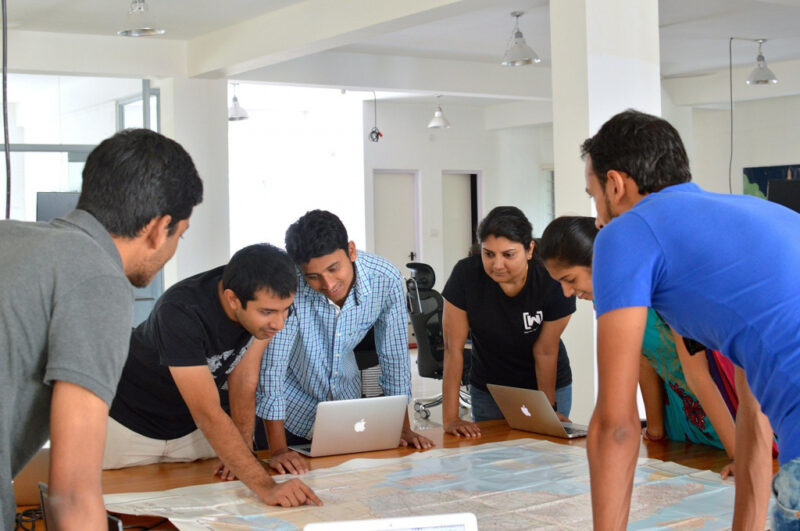The Indian workplace in 2025 looks radically different from what it was just five years ago. From how people work to what they expect from employers, the cultural fabric of office life in India has undergone a profound transformation. These shifts are not only influencing corporate productivity and employee satisfaction — they are also reshaping India’s global image as a hub of modern work culture.
Driven by technology, generational changes, global exposure, and a stronger focus on well-being, the Indian workforce today is more empowered, inclusive, and emotionally intelligent than ever before.
Hybrid Work Isn’t a Perk — It’s the Default
One of the most visible changes in 2025 is the normalization of hybrid work. What started as a response to the pandemic has now become a permanent structure. Most companies have adopted flexible schedules, with employees choosing how many days they want to work on-site.
From IT firms in Bengaluru to media houses in Mumbai, productivity is now measured by outcomes, not office hours. The concept of “face time” has faded, and remote work tools are embedded deep into company DNA.
Startups, especially in Tier 2 cities like Jaipur, Indore, and Kochi, are using hybrid models to access talent pools nationwide — redefining India’s urban job monopoly.
Mental Health Is Prioritized — Not Whispered About
In 2025, mental health is no longer a taboo topic in Indian offices. Organizations have gone beyond token wellness webinars to offering full-fledged mental health support — including on-call therapists, emotional intelligence training, and burnout prevention programs.
Companies like Zomato, Infosys, and many fast-growing startups now integrate mental wellness KPIs into HR performance metrics. There’s also a rise in mental health leave, which employees take without stigma.
Younger employees, especially Gen Z, expect emotional safety and psychological safety at work — and organizations that fail to deliver see higher attrition.
From Hierarchy to Harmony: Flatter Organizational Structures
Indian workplaces, once defined by top-down hierarchies and strict reporting chains, are evolving into flatter, more collaborative spaces. In 2025, companies are shifting toward agile team structures where roles are dynamic, and decision-making is decentralized.
Junior employees are now encouraged to challenge ideas, and feedback is bi-directional. This horizontal culture is especially evident in product startups, creative agencies, and digital-first brands where cross-functional pods and “squads” have replaced departments.
This change is fostering faster innovation and stronger ownership across the board.
Diversity, Equity, and Inclusion (DEI) Go Beyond Gender
While gender parity has seen progress, 2025’s Indian workplace embraces a broader lens of diversity, equity, and inclusion. Companies are hiring more LGBTQ+ individuals, differently-abled talent, and professionals from economically disadvantaged backgrounds.
Hiring panels now undergo bias training, and AI-based recruitment tools are monitored to ensure fairness. Inclusive language in communication and neutral HR policies are being adopted across industries.
What’s driving this? Not just social responsibility — but the understanding that diverse teams build better products, foster creativity, and connect deeper with users.
Purpose-Driven Careers: Employees Seek Impact, Not Just Income
One of the defining cultural shifts is the rise of purpose over paycheck. In 2025, Indian professionals — especially millennials and Gen Z — are choosing to work at companies that align with their values.
Startups focused on sustainability, climate tech, and social good are attracting top talent from big tech. Employees want to know how their work contributes to society and how their employer gives back.
This change is pushing traditional businesses to adopt Environmental, Social, and Governance (ESG) strategies not just for investors, but to retain their best minds.
Learning Is Continuous and Self-Driven
In today’s fast-changing world, static job descriptions are obsolete. Indian employees are now expected — and encouraged — to learn continuously. This includes upskilling in AI, data literacy, digital communication, and leadership development.
Workplaces offer monthly learning credits, micro-certifications, and internal knowledge platforms. The focus is on self-driven learning through gamified tools, cohort-based courses, and peer-led sessions.
In 2025, learning is not a privilege — it’s a cultural necessity.
Work-Life Integration Replaces Work-Life Balance
The old idea of shutting work at 6 p.m. has evolved. With hybrid setups, employees in 2025 practice work-life integration — blending personal and professional priorities throughout the day.
Whether it’s taking a midday yoga class or attending a child’s school event, professionals today expect flexibility without guilt. What matters is quality of output, not hours logged.
Organizations now promote energy management, not time management. Apps that track wellness, screen time, and productivity patterns are common, helping employees build healthier routines.
Celebrating Regional Culture and Vernacular Expression
2025 has seen a revival of regional identity and linguistic inclusion in workplaces. With remote hiring enabling teams from across India, companies are embracing vernacular communication tools and localized employee engagement activities.
Internal newsletters are often bilingual, festivals from different regions are celebrated equally, and even internal upskilling courses are now offered in multiple Indian languages.
This is building a workplace culture that feels more Indian, more connected, and more inclusive.
Conclusion: The Indian Workplace Has Grown Up
What defines the Indian workplace in 2025 is emotional maturity, technological empowerment, and cultural inclusivity. The outdated corporate stereotypes — long hours, strict bosses, robotic roles — are being replaced by compassionate leadership, flexible systems, and purpose-driven careers.
These cultural shifts are not just cosmetic changes; they’re deep rewrites of how Indian professionals view work, value, and self-worth.
As we move ahead, one truth remains — the organizations that embrace these changes are the ones that will lead India’s future economy and global reputation.


